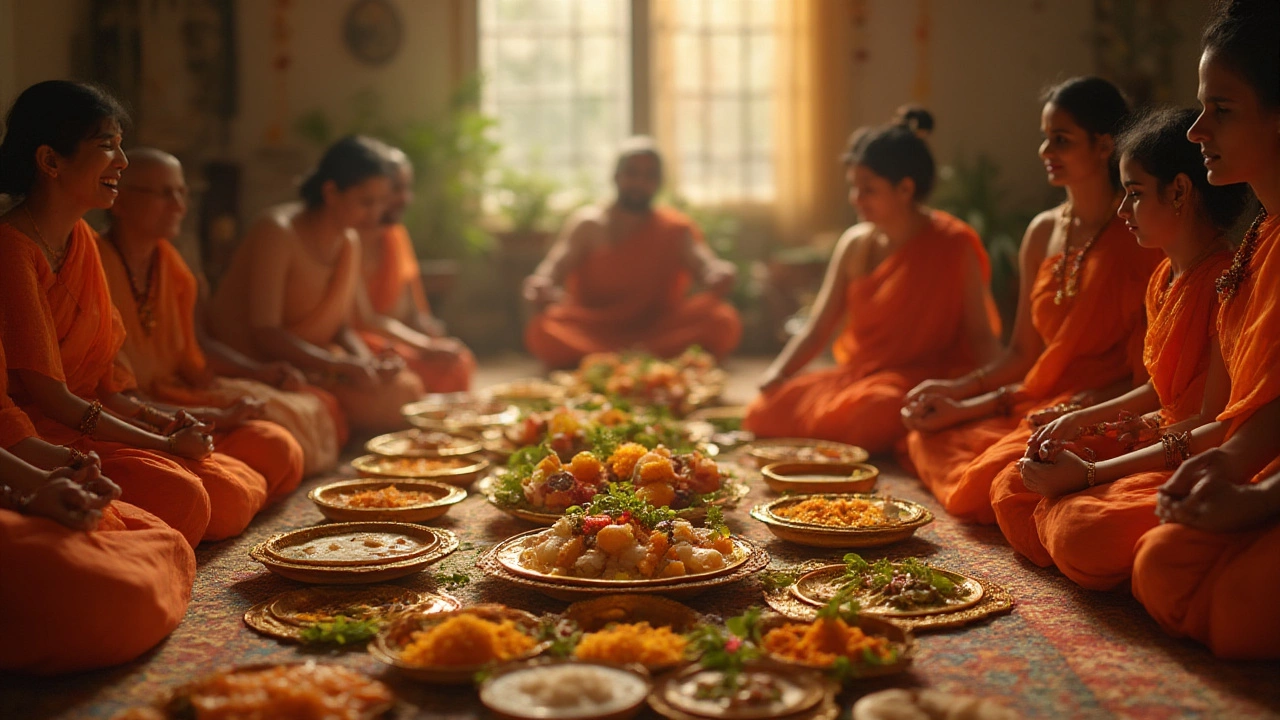Hindu Beliefs: What They Are and Why They Matter
If you’ve ever wondered what Hinduism really believes, you’re not alone. It’s a mix of stories, symbols, and habits that guide millions of people every day. Below, we break down the big ideas in plain language so you can see how they fit together.
Core Beliefs and Gods
At the heart of Hindu thought is the idea of Brahman – an invisible, all‑pervasive energy that’s everything and nothing at the same time. Most Hindus see this as the source of the universe, and they honor it through many different gods.
Each god represents a side of life. For example, Vishnu protects and preserves, Shiva transforms and destroys, and Devi (the goddess) nurtures and empowers. People often choose a favorite god, called an Ishta Devata, and focus their prayers on that figure.
Stories about these gods are collected in the Mahabharata and Ramayana. They’re not just myths; they’re moral guides that teach duty, courage, and love. When you read about Rama’s exile or Krishna’s tricks, you’re getting a roadmap for handling real‑world challenges.
How Beliefs Shape Daily Life
The everyday side of Hinduism shows up in small habits. Many families start the day with a brief prayer at a home altar, lighting a candle and offering a bit of incense. This simple act reminds them of their connection to the divine.
Food also reflects belief. Vegetarian meals are common because they follow the principle of ahimsa – non‑violence. When you see a plate of dal or a bowl of rice, it’s often prepared with the intention of honoring life.
Festivals are another big piece. Diwali, the festival of lights, celebrates the victory of good over darkness. Holi, the color‑throwing party, marks the arrival of spring and the playful side of the gods. Each celebration mixes ritual, story, and community.
Even the way people handle life events—birth, marriage, death—carries spiritual meaning. A naming ceremony (Namkaran) ties a newborn to a chosen god, while a wedding (Vivah) is seen as a sacred bond that reflects cosmic order.
All these practices keep the ideas of Hindu beliefs alive, not just as abstract thoughts but as lived experiences. Whether you’re cooking, praying, or joining a festival, you’re participating in a tradition that stretches back thousands of years.
Understanding these basics gives you a window into a culture rich with stories, symbols, and simple daily actions that together shape a vibrant spiritual life.
Why Do Hindus Not Eat Pork? Indian Food Beliefs and Traditions Explained
Why don't most Hindus eat pork? Discover the cultural, spiritual, and historical reasons behind this widely observed Hindu food restriction and its impact on Indian cuisine.
